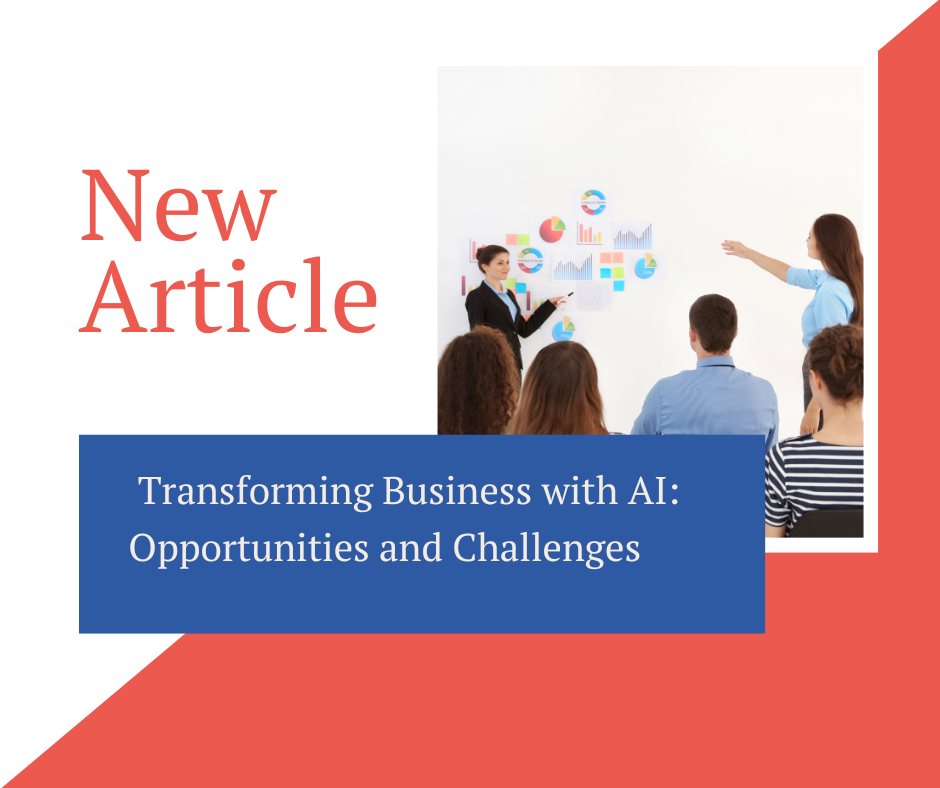
The Impact of Artificial Intelligence on Business Operations
The Impact of Artificial Intelligence on Business Operations
Artificial intelligence (AI) is revolutionizing the way businesses operate across various sectors. By automating tasks, optimizing logistics, enhancing customer interactions, and aiding in decision-making, AI is not just a tool of efficiency; it is becoming a cornerstone of competitive strategy. This article explores the transformative effects of AI in the business world, focusing on several key areas where its impact is most pronounced.
Automation of Routine Tasks
One of the most immediate benefits of AI in business is its ability to automate routine and repetitive tasks. In industries like manufacturing, AI-driven robots perform tasks with precision and without fatigue, increasing production rates and quality. In the office environment, AI applications handle data entry, manage schedules, and streamline communications, freeing human employees to focus on more complex and creative tasks. This shift not only boosts productivity but also reduces errors and operational costs.
Enhancing Customer Experience
AI is also reshaping customer interactions. Chatbots and virtual assistants, powered by natural language processing, can handle a vast range of customer service inquiries without human intervention. This technology not only improves response times but also provides a 24/7 service model that was once cost-prohibitive. Moreover, AI-driven analytics help businesses understand customer behaviors and preferences, allowing for more personalized marketing and service offerings.
Optimizing Supply Chains and Logistics
Supply chain management is another area where AI is making significant inroads. AI systems analyze large volumes of data to forecast demand, adjust inventory levels, and optimize delivery routes. This capability is particularly valuable in minimizing waste, reducing costs, and improving overall efficiency. Companies like Amazon have leveraged AI to transform their logistics, enabling faster deliveries and higher customer satisfaction.
Aiding in Decision Making
Decision support systems powered by AI are capable of analyzing complex data sets to provide insights that humans might overlook. These systems can predict market trends, identify investment opportunities, and advise on risk management. The finance sector, for instance, uses AI to power algorithmic trading, where decisions about buying and selling stocks are made at speeds and volumes unattainable by human traders.
Challenges and Ethical Considerations
Despite its many benefits, the integration of AI into business practices is not without challenges. The primary concern is the ethical use of AI, particularly in terms of privacy, surveillance, and bias. AI systems are only as unbiased as the data they are trained on, and poor data can lead to discriminatory outcomes. Additionally, there is the issue of job displacement, as AI takes over tasks traditionally performed by humans.
AI's role in business is growing at an unprecedented rate, driven by advances in technology and the increasing availability of data. While it presents significant advantages in terms of efficiency, cost reduction, and enhanced capabilities, it also requires careful consideration of ethical implications. For businesses, the key to successful AI integration lies in balancing these benefits with responsible usage, ensuring that AI serves to augment human work and not just replace it. As AI continues to evolve, it will undoubtedly shape the future landscape of business in profound ways.
